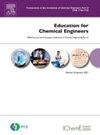Effectiveness of active learning techniques in knowledge retention among engineering students
IF 2.3
2区 教育学
Q1 EDUCATION, SCIENTIFIC DISCIPLINES
引用次数: 0
Abstract
Many studies have examined the effectiveness of active learning techniques in comparison with the traditional method and compared the student performance between the two types of teaching. However, there are few studies focused on long-term retention after using different active learning techniques. This study evaluates the effectiveness of two active learning techniques—the Jigsaw cooperative learning approach and H5P interactive videos—compared with traditional lectures in enhancing immediate learning outcomes and long-term retention among engineering students. To evaluate the effectiveness of these techniques on student retention, a total of nine academic years (from 2014 to 2023 were evaluated, involved approximately 150 students per year. An exhaustive analysis of results was conducted in comparison with traditional method, before and after applying these learning activities, with the aim of testing its effectiveness. In addition, a survey was distributed among students to assess their experience and perception about the used techniques. The survey showed high satisfaction rates, particularly for interactive videos, highlighting the perceived benefits of these methods in engaging students and supporting skill development. The results demonstrate that the Jigsaw and H5P interactive video methods showed promise in terms of immediate learning outcomes, particularly in student engagement and performance in short-term assessments. However, in terms of long-term knowledge retention, the control group performed better, indicating that traditional lectures might have a stronger effect on retaining knowledge over time. The active learning techniques, while effective in the short-term, did not significantly enhance academic performance in the long-term assessments.
主动学习技术在工科学生知识记忆中的有效性
许多研究已经检验了主动学习技术与传统方法的有效性,并比较了两种教学方式之间的学生表现。然而,很少有研究关注使用不同的主动学习技巧后的长期记忆。本研究评估了两种主动学习技术——拼图合作学习方法和H5P互动视频——在提高工程专业学生的即时学习成果和长期记忆方面的有效性,并与传统讲座进行了比较。为了评估这些技术对学生留存率的有效性,我们总共评估了9个学年(从2014年到2023年),每年大约涉及150名学生。在应用这些学习活动之前和之后,对结果进行了详尽的分析,与传统方法进行了比较,目的是测试其有效性。此外,还在学生中进行了一项调查,以评估他们对所使用技术的经验和看法。调查显示了很高的满意度,尤其是对互动视频的满意度,突出了这些方法在吸引学生和支持技能发展方面的好处。结果表明,Jigsaw和H5P互动视频方法在即时学习成果方面表现良好,特别是在学生参与和短期评估中的表现方面。然而,在长期知识记忆方面,对照组表现更好,这表明传统讲座可能对长期记忆知识有更强的影响。主动学习方法虽然在短期内有效,但在长期评估中并没有显著提高学习成绩。
本文章由计算机程序翻译,如有差异,请以英文原文为准。
求助全文
约1分钟内获得全文
求助全文
来源期刊

Education for Chemical Engineers
Multiple-
CiteScore
8.80
自引率
17.90%
发文量
30
审稿时长
31 days
期刊介绍:
Education for Chemical Engineers was launched in 2006 with a remit to publisheducation research papers, resource reviews and teaching and learning notes. ECE is targeted at chemical engineering academics and educators, discussing the ongoingchanges and development in chemical engineering education. This international title publishes papers from around the world, creating a global network of chemical engineering academics. Papers demonstrating how educational research results can be applied to chemical engineering education are particularly welcome, as are the accounts of research work that brings new perspectives to established principles, highlighting unsolved problems or indicating direction for future research relevant to chemical engineering education. Core topic areas: -Assessment- Accreditation- Curriculum development and transformation- Design- Diversity- Distance education-- E-learning Entrepreneurship programs- Industry-academic linkages- Benchmarking- Lifelong learning- Multidisciplinary programs- Outreach from kindergarten to high school programs- Student recruitment and retention and transition programs- New technology- Problem-based learning- Social responsibility and professionalism- Teamwork- Web-based learning
 求助内容:
求助内容: 应助结果提醒方式:
应助结果提醒方式:


